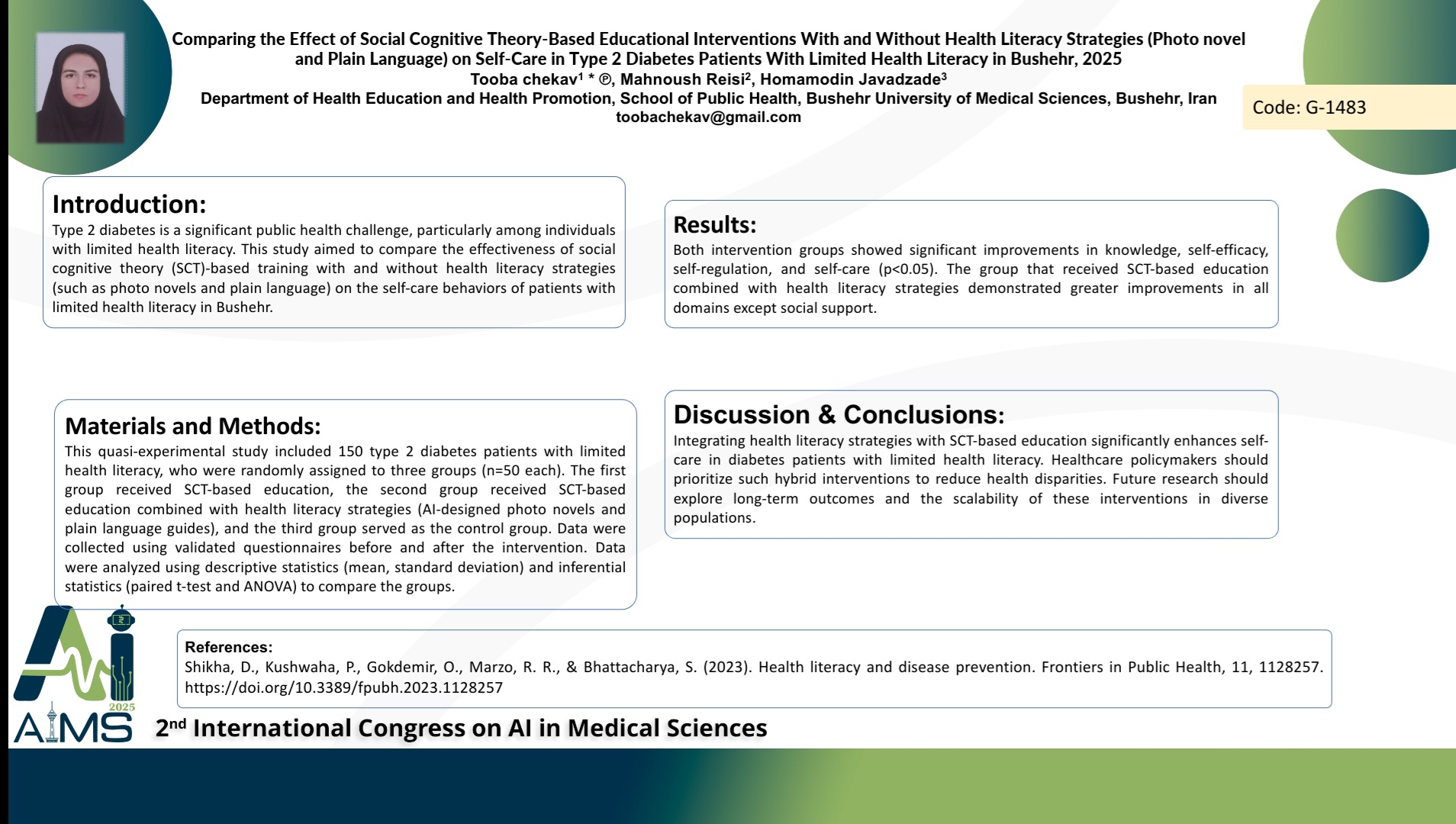Comparing the Effect of Social Cognitive Theory-Based Educational Interventions With and Without Health Literacy Strategies (Photonovel and Plain Language) on Self-Care in Type 2 Diabetes Patients With Limited Health Literacy in Bushehr, 2025
Code: G-1483
Authors: Tooba Chekav * ℗, Mahnoush Reisi, Homamodin Javadzade
Schedule: Not Scheduled!
Tag: Intelligent Virtual Assistant
Download: Download Poster
Abstract:
Abstract
Background and aims: Type 2 diabetes is a significant public health challenge, particularly among individuals with limited health literacy. This study aimed to compare the effectiveness of social cognitive theory (SCT)-based training with and without health literacy strategies (such as photonovels and plain language) on the self-care behaviors of patients with limited health literacy in Bushehr. Methods: This quasi-experimental study included 150 type 2 diabetes patients with limited health literacy, who were randomly assigned to three groups (n=50 each). The first group received SCT-based education, the second group received SCT-based education combined with health literacy strategies (AI-designed photonovels and plain language guides), and the third group served as the control group. Data were collected using validated questionnaires before and after the intervention. Data were analyzed using descriptive statistics (mean, standard deviation) and inferential statistics (paired t-test and ANOVA) to compare the groups. Results: Both intervention groups showed significant improvements in knowledge, self-efficacy, self-regulation, and self-care (p0.05). The group that received SCT-based education combined with health literacy strategies demonstrated greater improvements in all domains except social support. Conclusion: Integrating health literacy strategies with SCT-based education significantly enhances self-care in diabetes patients with limited health literacy. Healthcare policymakers should prioritize such hybrid interventions to reduce health disparities. Future research should explore long-term outcomes and the scalability of these interventions in diverse populations
Keywords
Social Cognitive Theory, Health Literacy, Diabetes
